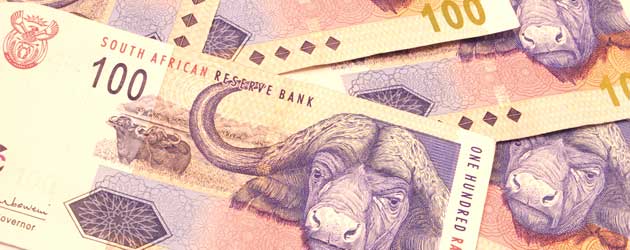Change of South African President Gives Rand a Short-term Boost, but SA Economic Challenges Could Still Support GBP/ZAR Exchange Rate
The South African Rand has witnessed strong gains versus Pound Sterling in the past few days as South Africa finally ousted controversial President Jacob Zuma, causing the GBP/ZAR exchange rate to tumble.
Over the past week the Pound Sterling to South African Rand exchange rate has lost over -2.7%, largely thanks to a breakthrough moment in South African politics.
Jacob Zuma, South Africa’s fourth President, served for almost nine years, but his time in office was marred by numerous scandals, including allegations of corruption, excessive spending, embezzlement and clashes with high-ranking officials in his own government.
Particularly concerning for markets have been Zuma’s frequent spats with his various finance ministers, who are struggling to get the economy on track in the face of the President’s lavish spending of public funds.
South African government bonds are rated as ‘junk’ by both Standard & Poor’s and Fitch, while the country suffered its second recession in around a decade during mid-2017.
Ramaphosa therefore enters office with a heap of problems to sort out; something which might be easier said than done – a realisation that could come back to bite the Rand.
Further GBP/ZAR Exchange Rate Weakness Forecast if Ramaphosa can Make Meaningful Economic Changes in South Africa
While markets judge the political outlook for South Africa has improved, the fact remains that Ramaphosa – Nelson Mandela’s preferred choice to lead the African National Congress (ANC) – only just managed to scrape victory in the party’s leadership elections.
Meanwhile on an economic front markets may not yet have faced up to the true extent of the challenge facing Ramaphosa and the officials he picks to help him turn the nation around.
South Africa has recorded one of the weakest annual growth rates – averaging GDP of under 2% each year – in sub-Saharan Africa.
Between 2009 and 2016 South Africa’s debt-to-GDP ratio has climbed from 31% to 50%, while the unemployment rate was 26.7% in the final three months of 2017.
Overhauling the South African economy and putting the nation on track to achieving strong growth will not be an easy task, but the GBP/ZAR exchange rate has already seen significant declines thanks to investor hopes that Ramaphosa can manage the gargantuan task ahead of him.
At the very least, investors are currently giving him the benefit of the doubt, with many likely assuming that any change of leadership is better than having Jacob Zuma continue with his.
Any signs from Ramaphosa that he is planning to shakeup South African politics in order to get the economy back on track is likely to be met with strong gains for the South African Rand; a cabinet reshuffle, crackdowns on corruption both inside and outside of government, new spending plans and action to tackle unemployment could deliver significant boosts for ZAR.
Will GBP/ZAR Exchange Rate Register Further Losses on New UK Political and Brexit Developments?
Politics is also likely to be a key driver of Pound Sterling over the coming weeks, with the GBP/ZAR exchange rate potentially registering strong gains or losses if Cabinet infighting continues or the next stage of Brexit negotiations appears to be going poorly.
Foreign Secretary Boris Johnson delivered a speech on Valentine’s Day that had been lauded as an attempt to unify Brexiters and Remainers together behind a common cause, yet the critical reception was rather icy and the address did nothing to row back fears of a ‘hard Brexit’.
Since she came to power, there have been numerous incidents that have underlined Theresa May’s struggle to make her authority felt.
If disquiet within her party bubbles up to the surface again the Pound could tumble as markets brace for a leadership challenge or even another general election.
Signs that May has managed to tighten her grip on power and solidify the support of her MPs could push the GBP/ZAR exchange rate significantly higher.


Comments are closed.